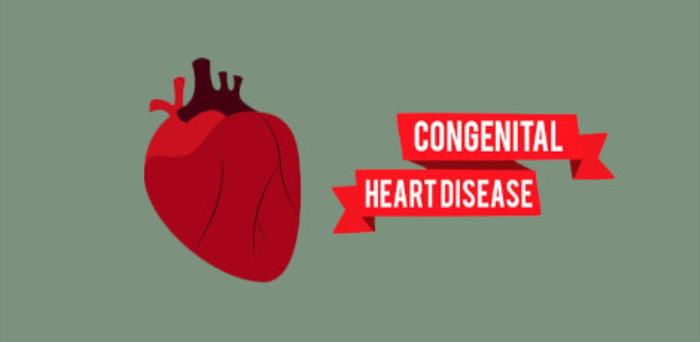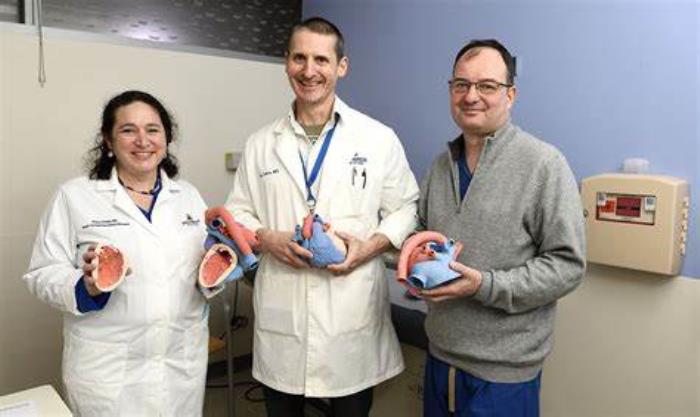Heart transplantation is a life-saving option for individuals with congenital heart disease (CHD), especially when other surgical or medical interventions are no longer effective. CHD encompasses a range of structural abnormalities present at birth, which can significantly impact heart function. While advances in medical care have extended the life expectancy of many CHD patients, severe cases may eventually require a heart transplant to improve quality of life and survival.
Medical disclaimer: This content is for general awareness and does not replace a doctor’s consultation. For diagnosis or treatment decisions, consult a qualified specialist.
What Is Congenital Heart Disease and How Does It Affect the Heart?
Congenital heart disease refers to structural defects in the heart that develop during fetal growth. These defects can affect blood flow, oxygen levels, and overall heart function. Conditions like single ventricle defects, Tetralogy of Fallot, or transposition of the great arteries can lead to complications such as heart failure, arrhythmias, or pulmonary hypertension, necessitating advanced interventions like heart transplantation.
When Is Heart Transplantation Recommended for Congenital Heart Disease?
Heart transplantation is typically considered for CHD patients when other treatments, such as corrective surgeries or medications, fail to manage symptoms or improve heart function. Indications include end-stage heart failure, severe cyanosis (low oxygen levels), or complications from prior surgeries, such as Fontan failure. Transplantation becomes a critical option to restore normal heart function and prolong life.

The Unique Challenges of Heart Transplantation in Congenital Cases
CHD patients present unique challenges during heart transplantation due to anatomical complexities, prior surgeries, and potential organ mismatches. Scar tissue from previous operations, altered vascular structures, and complications like high pulmonary pressures can make the procedure more demanding. These factors require specialized surgical expertise and tailored postoperative care.
Pre-Transplant Evaluation: Assessing Suitability in CHD Patients
A thorough evaluation is essential to determine the suitability of CHD patients for heart transplantation. This includes assessing heart function, lung pressure, and overall organ health. Additional considerations involve the patient’s history of surgeries, potential for complications, and readiness for lifelong immunosuppressive therapy. A multidisciplinary team of cardiologists, surgeons, and other specialists collaborates to ensure optimal outcomes.
Surgical Complexities in Transplanting CHD Patients
Transplanting a heart in CHD patients often involves addressing intricate anatomical issues. Surgeons must account for previous repairs, reconstruct vascular connections, and sometimes perform additional procedures like lung transplantation if pulmonary pressures are excessively high. The complexity of these surgeries underscores the importance of experienced transplant centers specializing in CHD cases.
The Importance of Pediatric Heart Transplantation for CHD
For children with severe congenital heart defects, transplantation offers a chance at a longer, healthier life. Pediatric heart transplantation requires specialized expertise to address the unique needs of growing bodies and developing hearts. Early intervention is critical, as delays can lead to irreversible damage or complications that may limit transplant eligibility.
Managing Pulmonary Hypertension in CHD Transplant Recipients
Pulmonary hypertension, common in congenital heart disease (CHD) patients, adds complexity to heart transplantation. Strategies include pre-transplant management with vasodilators and post-transplant monitoring to ensure stable pulmonary pressures.
The Role of Immunosuppressive Therapy in CHD Patients Post-Transplant
CHD patients require tailored immunosuppressive regimens to prevent organ rejection while minimizing side effects. A careful balance is crucial for long-term graft survival and overall health.
Long-Term Outcomes of Heart Transplantation in CHD Patients
Advances in surgical techniques and post-operative care have improved long-term survival rates for CHD transplant recipients. Many patients achieve significant improvements in quality of life and life expectancy.
Overcoming Rejection Risks in Congenital Heart Disease Cases
CHD patients may face higher rejection risks due to prior surgeries or complex anatomy. Regular monitoring with biopsies and echocardiograms helps detect and manage rejection early.
Post-Transplant Rehabilitation for CHD Patients: What to Expect
Rehabilitation focuses on physical recovery, building strength, and adapting to a new lifestyle. Programs are customized to meet the unique needs of CHD patients, ensuring a smooth transition to normal activities.

Psychological and Emotional Support for CHD Transplant Recipients
The emotional challenges of living with CHD and undergoing a transplant are significant. Access to psychological support helps patients and families cope with anxiety, depression, and the stress of long-term care.
The Role of Genetic Factors in CHD and Heart Transplant Compatibility
Genetic testing aids in understanding the role of hereditary factors in CHD and helps assess donor-recipient compatibility. It also provides insights into potential risks and long-term outcomes.
Advances in Surgical Techniques for Transplanting CHD Patients
Innovative surgical approaches, including 3D modeling and minimally invasive procedures, enable successful transplantation for patients with complex congenital heart defects, improving recovery times and outcomes.
Pediatric vs. Adult Heart Transplants in Congenital Heart Disease Cases
Children with CHD often require specialized care during transplantation due to growth considerations and unique anatomy. Adults face different challenges, such as prior surgeries and comorbidities.
Addressing the Financial and Logistical Challenges of CHD Transplants
Heart transplantation for CHD patients can be financially and logistically demanding. Many hospitals in India provide financial counseling and assistance programs to support families during the process.
Success Stories: Inspiring Outcomes in CHD Heart Transplant Patients
Success stories of CHD transplant recipients showcase the life-transforming impact of transplantation, offering hope to patients and families navigating this challenging journey.
The Role of Caregivers and Support Networks in CHD Transplant Recovery
Caregivers play a vital role in the recovery process, offering emotional support, managing medical appointments, and ensuring adherence to medications and lifestyle changes.
The Challenges of Heart Transplantation in Diabetic Patients
Understand the challenges of heart transplantation in diabetic patients. This blog discusses the unique risks that diabetic patients face when undergoing heart transplant surgery, including complications related to blood sugar control, wound healing, and organ rejection.
Exploring the Ethical Aspects of Heart Transplantation
Learn about the ethical aspects of heart transplantation. This post delves into the complex ethical issues involved in heart transplant surgeries, such as organ allocation, patient eligibility, and the decision-making processes surrounding the procedure.
Conclusion: Transforming Lives Through Heart Transplantation for CHD Patients
Heart transplantation provides a new lease on life for many CHD patients, enabling them to overcome severe cardiac challenges and achieve a significantly improved quality of life.
Best Heart Transplant in India
The Best Heart Transplant in India offers a life-saving solution for patients with end-stage heart failure, using advanced surgical techniques and comprehensive post-transplant care.
Best Heart Transplant Hospitals in India
The Best Heart Transplant Hospitals in India provide state-of-the-art facilities, skilled transplant specialists, and multidisciplinary teams for seamless patient care and recovery.
Heart Transplant Cost in India
The Heart Transplant Cost in India is structured to offer affordability while ensuring access to world-class transplant services and comprehensive care packages.
Best Heart Transplant Surgeons in India
The Best Heart Transplant Surgeons in India have extensive experience in performing complex transplants, ensuring precise techniques and personalized patient care for optimal outcomes.
FAQs
What is congenital heart disease, and why might it require a heart transplant?
Congenital heart disease refers to structural heart defects present from birth. Severe cases may necessitate a transplant when the heart can no longer function effectively.
How is eligibility for a heart transplant determined in CHD patients?
Eligibility is assessed based on the severity of the defect, overall health, and the potential for successful transplantation and recovery.
Are heart transplants more complex for patients with congenital heart defects?
Yes, previous surgeries, altered anatomy, and associated conditions can complicate the procedure, requiring highly specialized surgical expertise.
What are the survival rates for CHD patients after heart transplantation?
Survival rates for CHD transplant recipients are steadily improving due to advances in medical care, with many patients living productive lives post-transplant.
How does heart transplantation affect children with congenital heart disease?
Heart transplantation can dramatically improve the quality of life for children, enabling normal growth and development, although long-term care is essential.